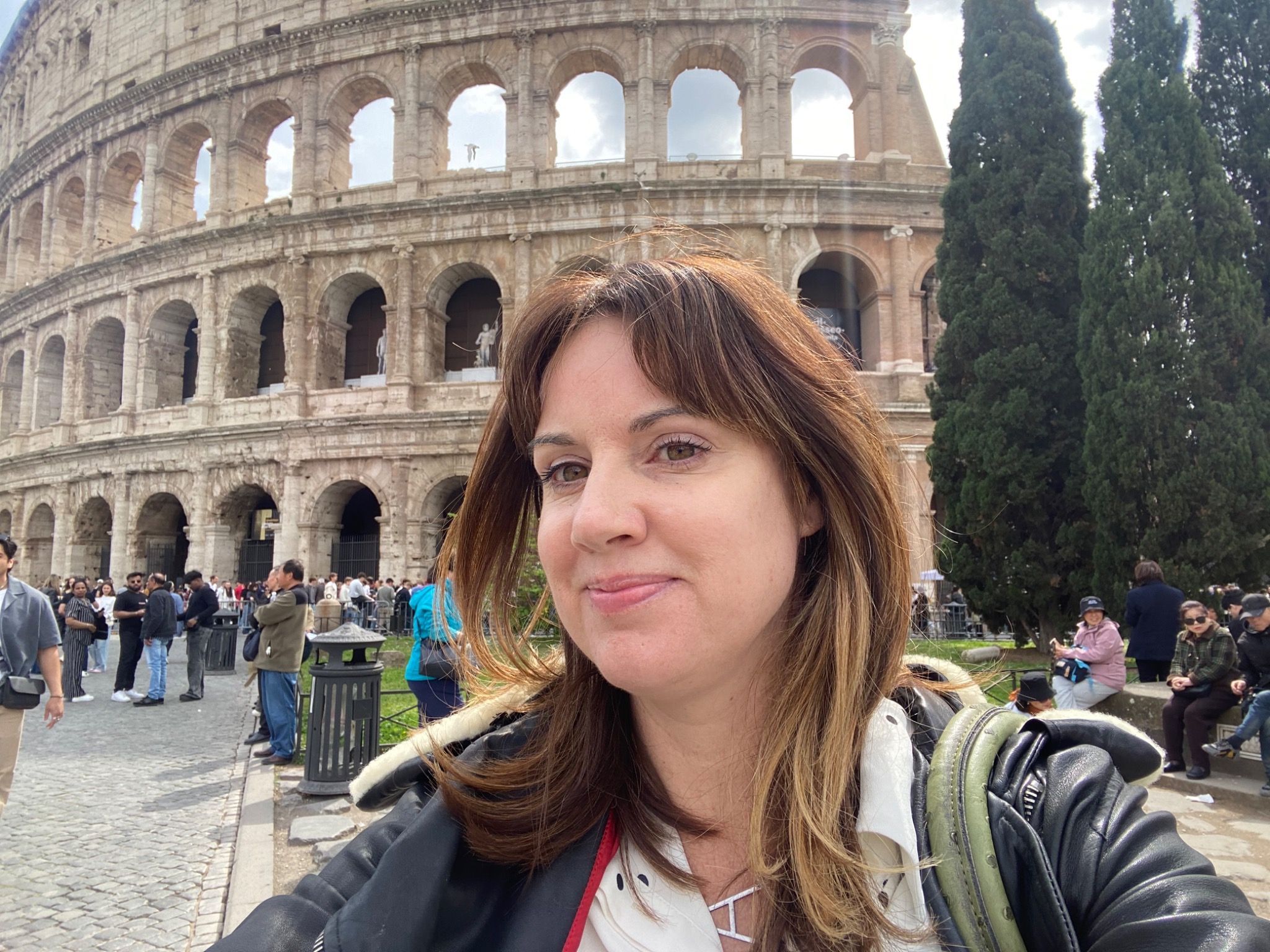Takeaways from the International Journalism Festival (IJF) 2025
(besides the 🍕!)
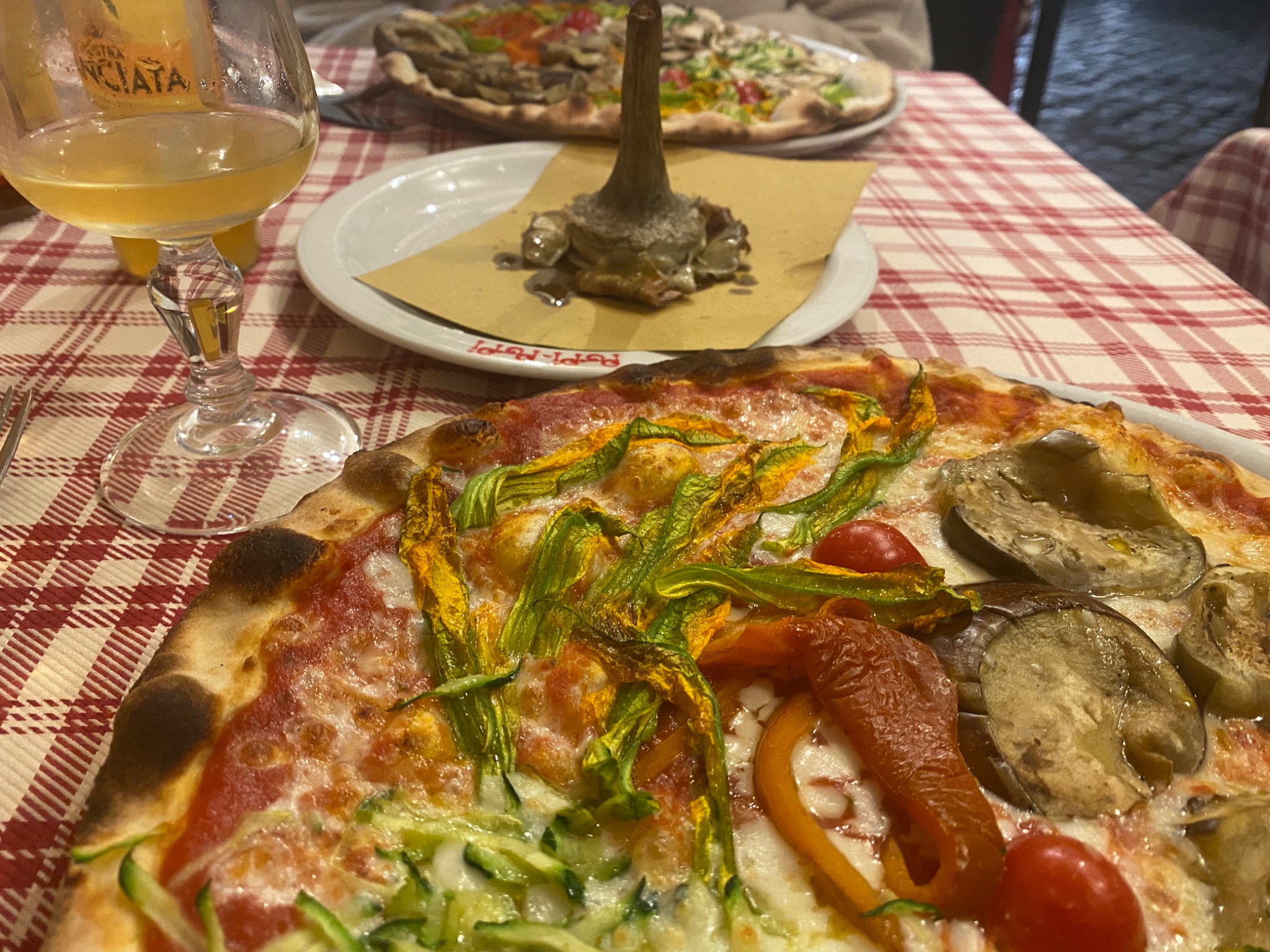
Yes, the margherita was great. But there was other food for thought, too.
It was such a treat to be back in Italy for the IJF, Europe’s largest media event, for my third year in a row last week. My flight to Rome was delayed because of some other visitors (called Charles and Camilla). Next, a passenger nearly had an allergic reaction to nuts once the plane took off. Luckily she was okay. But yes, it was time for an Aperol Spritz (or two) earlier than I thought...
In the capital, I met up with my lovely Australian-Italian freelancer friend Vanessa Mulquiney, who I met at last year’s festival. She introduced me to a Roman-Jewish fried artichoke.
On Wednesday night I got the train from Rome to Perugia which took just over two hours. Once there, I braved a hostel, although it was a cutie, down through a few arches and then a narrow alleyway, because of booking things at the last-minute. And I also had to do a bit of work on the side. Hai non molto tempo, as they might say in Italy
There is so much that I could include from the festival that even applies to people besides journalists, but here are some things that stuck out:
Journalism is and can be activism - bravo!
This very timely session was presented by pal Ruona Meyer among the other brilliant panelists. She is a media extraordinaire who I’d been in touch with for a year online and who I finally got to meet in person. We met when I was doing some PR work for the feminist newsletter The Evidence, which launched last year. Its creator Megan Clement was also in Perugia. Ruona kindly gifted me with a lovely scarf from Germany! (I bought her a stuffed koala from Australia, of course, but left it in London. It's now in the post).
Having reported extensively on issues like LGBTQ+ rights in Uganda, I was once called “that gay activist woman” on X, formerly Twitter, and had someone else tell me "it must be hard to do your gay rights activist work". All I was doing was writing factual and objective news stories. So I know from experience that journalists can be labelled “activists” whether they call themselves this or not. This was a fascinating exploration of this issue for me in Perugia.
Ruona said that in her experience, when police fail to do their job in some regimes, journalists may have to do some of the policing work to safeguard themselves against litigation. "So in an African content, that is going to look crazy to a journalism from the global North," she said.
I was curious to hear her recount how a couple in Kenya actually named their child "SoJo" (short for Solutions Journalism), after a grant and initiative that she'd co-ordinated, after it opened up a new income stream for the father. SoJo, a girl, is now three-years-old. “As I said in the panel, good journalism is activism because it changes lives and situations,” Ruona told me later when I asked her about this.
The issue of impact and activism also came up in the session on humanitarian reporting.
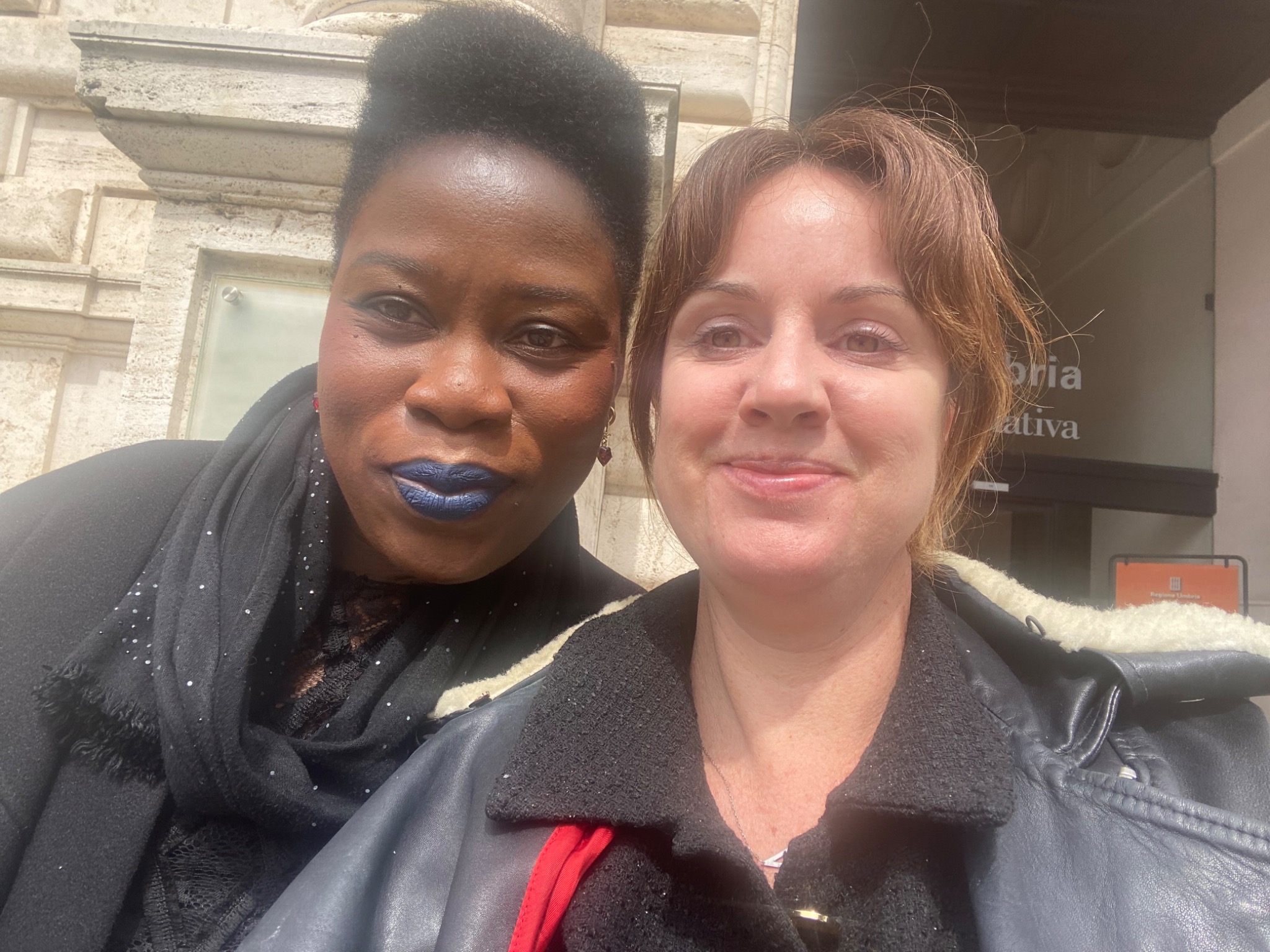
Journos and content creators can collaborate
One of the main themes of the 2025 festival was content creators or “newsfluencers” and how they're working with traditional journalists, with at least a few sessions dedicated to this.
A panel on how both shape the future together was really interesting. It mentioned that the Australian Broadcasting Corporation (ABC) is working with content creators. While there has unfortunately been some sneeriness about this and other examples such as influencers covering the Budget and even interviewing the prime minister in the election lead-up, it was fascinating hearing Hannah Ajakaiye, founder of FactsMatterNG, say that there’s a big market for content creators in Nigeria. There they're seen by many as being authentic.
A course by the Knight Center for Journalism in the Americas at the University of Texas at Austin, and UNESCO called Digital Content Creators and Journalists: How to be a Trusted Voice Online, attracted more than 10,000 participants from 178 countries, we were told during this panel. Knight is also behind an ebook on digital content creators.
Other sessions that looked at this trend included All journalists are content creators: it’s time for us to embrace that. Award-winning journalist and foreign correspondent Jane Ferguson, who is to launch new app Noosphere in the UK in the summer, told us here: "I mourn the death of many legacy media organizations... But the business model is not working, certainly in broadcasting. Not only can we fix that, but we can actually make journalism a lucrative career once again". We all look forward to the day...!
I also loved the point that she made that if you become an independent creator (well a successful one, anyway) then "no one can fire you from your job anymore". I have to say that l can’t get enough of this issue at the moment and I am so here for these content creators who I saw in Italy (and Abbie Chatfield etc).
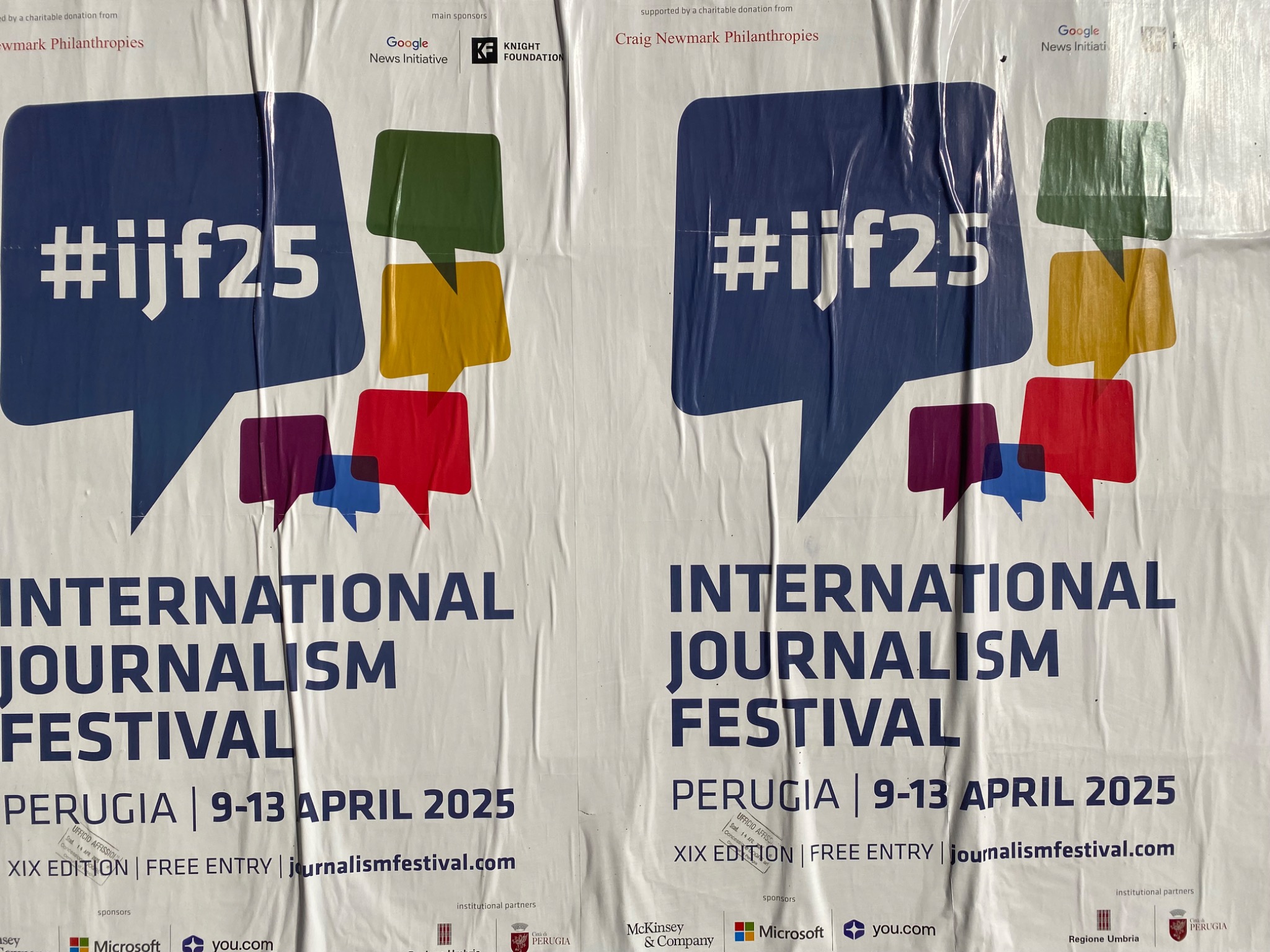
Start what you want to do pronto!
Freelance video and audio producer Adam Cole reminded us that there’s no time like the present to start doing what you're meant to be doing in Going independent: how journalists are building audiences and growing businesses across the world. “You should just start doing stuff now,” he said. As he pointed out, do you ever regret beginning projects later?
In another informative panel, Being a one woman show in the media: what you need to know, Josephine Karianjahi, co-founder and co-director of the amazingly successful Africa Podfest, told us to “just do the thing, write it down”.
That means even doing it while you've got some sort of secure job, Johnny Harris , who has an audience of over 3.5 million on YouTube, said in All journalists are content creators: it’s time for us to embrace that. He advised "I would say start making the thing you would make now." Johnny added: "Don't wait until you're independent. Start to try your hand at what you would be like if you weren't under an editorial voice."
This was echoed by Jane. "When you go in (for a negotiation at work), if they want you to take a pay cut, say, that's fine, but I'm going to be podcasting. That's fine, but I'm going to be on this other platform, doing this other work."
So start whatever you’ve been putting off. Start it now, in some form. Just start it.
Oh and this above panel on all journalists being content creators was held in the stunning Sala Brugnoli, at Palazzo Cesaroni. Check out the roof below in case you need a conference venue!

Write your book - but make it different
On the issue of starting things now, begin your book asap. But make it unique. However penning a dysfunctional family memoir, as we heard during Author talks: so you think you have a book in you? Your book needs to be different and you need to demonstrate this to a potential publisher. Who is your audience? Why should they read?
One book failed because it didn’t have a happy ending we were told. (Amazing, when you think of the world today…) Hope my memoir will be quirky enough, when I get around to it.
One freelance journalist who did start and finish his book was freelancer Pete Carvill. I attended the launch of A Duel of Bulls Hemingway and Welles in Love and War by in Perugia on Friday night. After that there were drinks with the Society of Freelance Journalists. Someone I enjoyed meeting at these was fellow freelancer Caroline Harrap.
I also loved hanging out with foreign affairs journalist Karen Rice, who is behind the award-winning Stolen Goodbyes podcast.
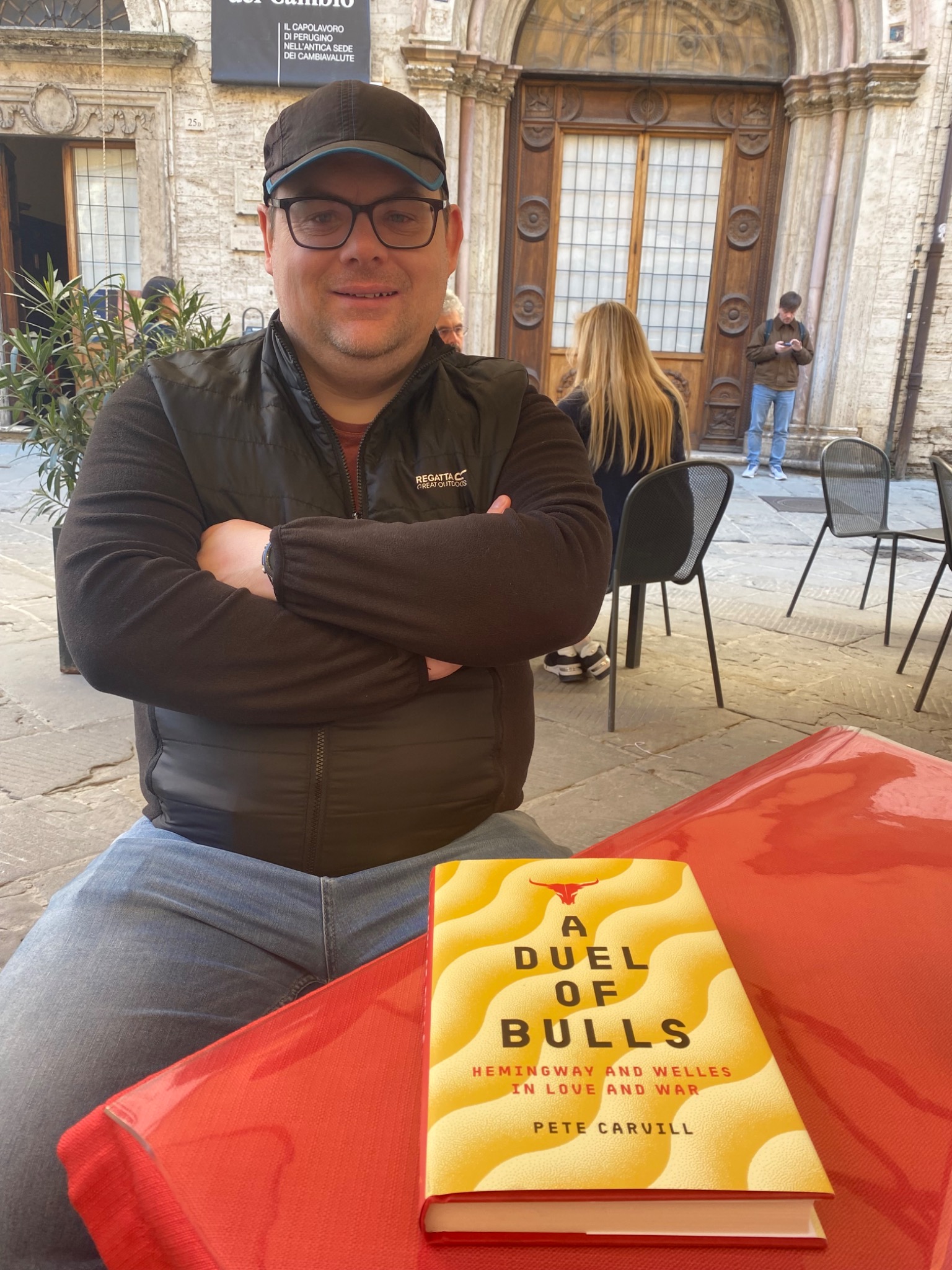
Empathy should lead crisis reporting, not trauma
If you've seen any posts on X by Patrick Gathara , who describes himself as an "inveterate complainer, armchair activist, keyboard warrior, cartoonist, writer, columnist", you'll understand why I was excited that he was moderating a panel in Perugia. He also works for The New Humanitarian.
The session was called Bridging ethics: lessons for mainstream and humanitarian journalism in crisis reporting, In it Patrick spoke about an interesting study by an Australian academic on Bosnia genocide survivors who had been interviewed by reporters. "You have a flock of journalists, and they all want to interview the same person. Over and over, this person is being subjected to this. I wonder whether journalists are actually trained before you go into these places?"
Jane reminded us when asked by an audience member during this session that it’s never worth retraumatizing someone for a story. Humanitarian reporting is hard though, she stressed. "You don't have to retraumatize someone to hear their story every time. It totally depends on the how vulnerable the person is in that moment and how you approach it. But I would say, unfortunately it takes a lot of experience."
Catherine Wambua-Soi from Al Jazeera also spoke about empathetic journalism while reporting on crises in Africa. "You don't have to have tears to make a story impactful. How you approach these people is very, very important. Some of these people are very resilient. Yes, they've lost their homes, yes, they they're in a refugee camp, but these are people who had their lives."
Mel Bunce, Professor of International Journalism & Politics at City University in London, spoke about research that she'd conducted that found that there was a small number of journalists who labelled themselves humanitarian reporters who occupied a slightly different space from the conventional mainstream media. "Western conventional reporting still tends to take an approach that's almost serving a Western audience, and I'm thinking of traditional, even public service broadcasters and news wires that we think of as being global, they still tend to take that approach," she said. "Whereas these humanitarian specialists at a small number of organizations like The New Humanitarian, like Devex, like a couple of others were more infused, we found by kind of the norms of the humanitarian field."
Mel gave the example of the 2015 Nepal earthquake which differentiated this reporting. Two-thirds of the coverage by The New Humanitarian and others contained local sources. They also centred on different topics and did follow up reporting around resilience. Only one-third of the traditional legacy outlets spoke to people on the ground.
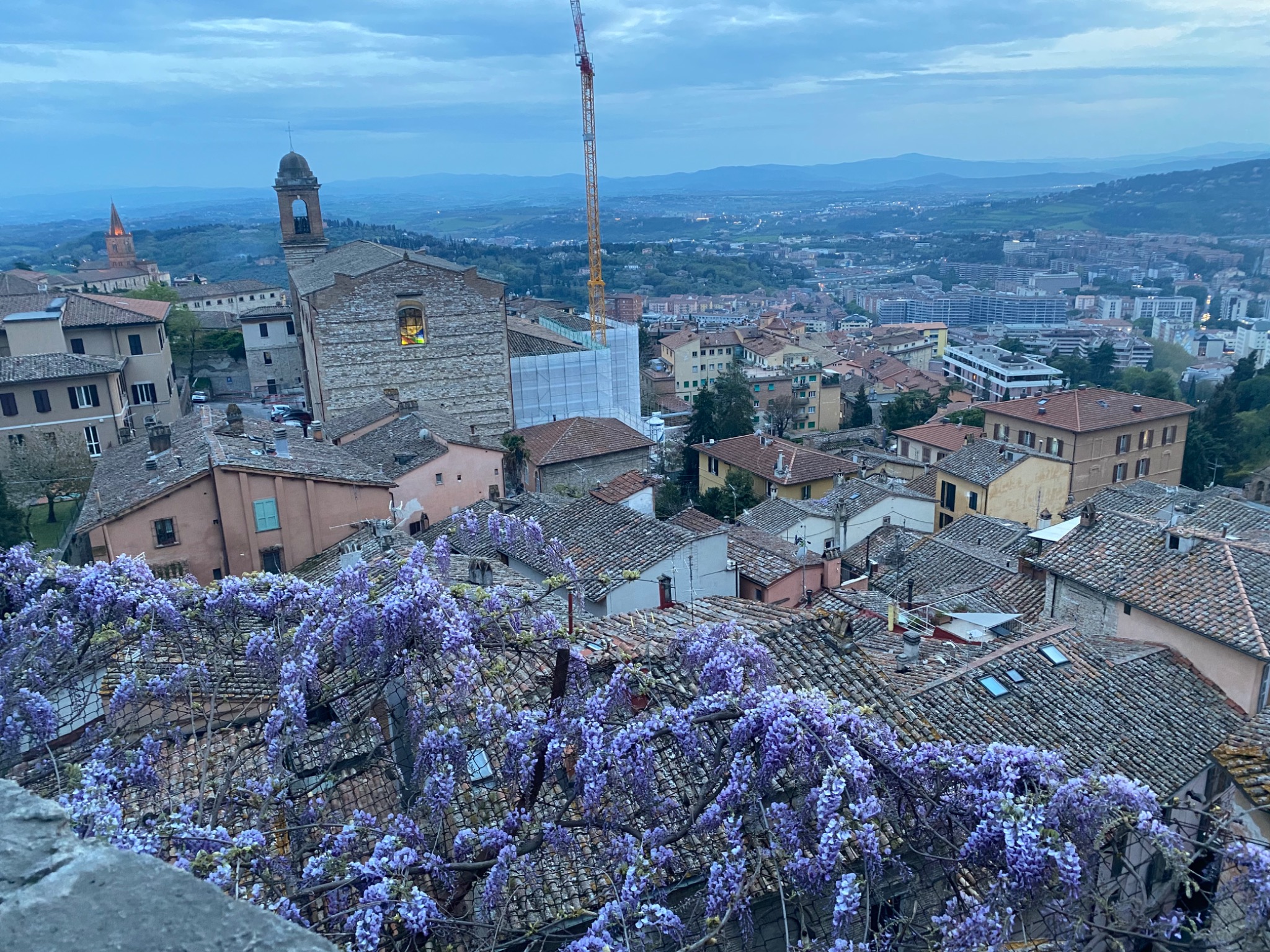
Think big and also diversify income
Africa Uncensored, now a decade old, partners with local and international organisations, hold screenings for people who can’t access their platform and hosts trainings for civil society besides news reporting, its head of investigations Munia Samuel told us. "Diversification of the revenue stream is what is important because when you rely on one channel it might be hard."
Green Bean Media, set up by journalists who were formerly active in Hong Kong but are now based in the UK, offer news via video, columns and live text broadcast, which has amassed them nearly 300,000 subscribers as of last week. It has a Patreon.
Besides news analysis they also have talk shows about food, travel and football. "We also believe in the quality content of our channel and at the same time the diversification of the content of our channel," said co-founder Gloria Chan. This really spoke to me being a big fan of high low journalism and having light and shade in the news cycle. Oh and Green Bean have “merch", too! I found it here! (Maybe it's my sweet tooth, but I feel that their name also lends itself to flavored drinks and ice-cream).
Gloria and Samuel were speaking at Going Independent: how journalists are building audiences and growing businesses across the world. It was also great to see Green Bean Media pick up one of the inaugural ICFJ News Creator Award for Excellence in Independent Video Journalism.
Can’t wait to get started on my Bring the A-Game biros, shopper bags, drinkware and more (maybe not). Oh and on diversifying incomes, there’s a non-alcoholic Italian aperitif called Crodino which I need to start importing into countries asap.
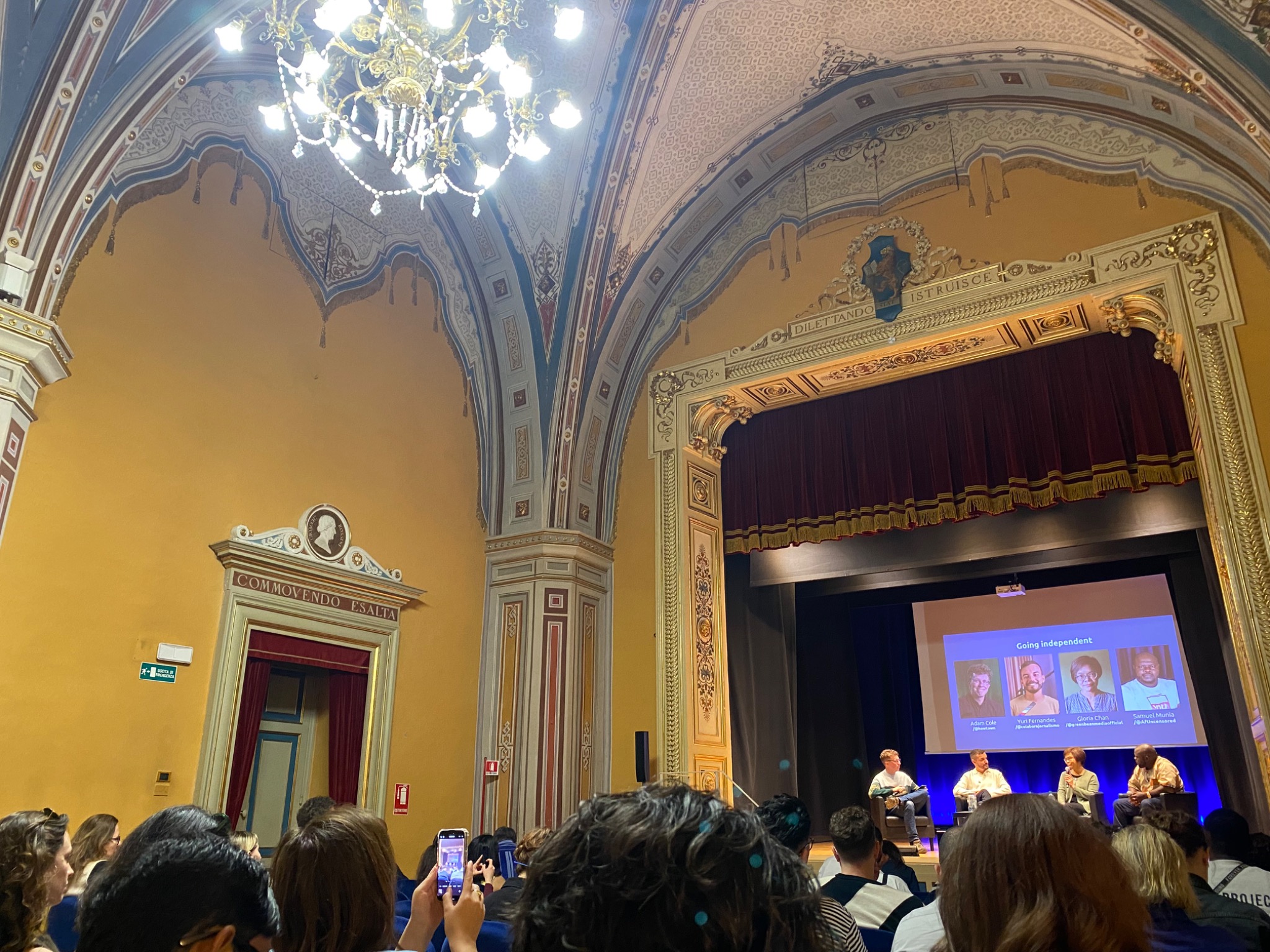
Collaborating and flying solo can both work
Josephine Karianjahi advised “always try to work with a co-founder”. And clearly we saw the benefits of this at the festival. Another session was titled Collaboration beyond content: strengthening independent public-interest journalism. And Eliza Anyangwe, Editor-in-Chief of The Fuller Project, told another audience “Journalism has been inherently competitive, but now we have to work in a radically collaborative way.” She was speaking at From funding crisis to opportunity: ideas and solutions in a post-USAID landscape.
But there were also many examples of people going it alone - and making a success of it. Adam Cole, who launched Howtown last May, has over 700k subscribers as of last week. Yuri Alves Fernandes from Colabora, a news website that covers sustainability and human rights, received more than 2,000 comments on a YouTube trailer when he launched on Valentine’s Day in Brazil, focusing on elderly gay couples. This is quite an achievement in a country where LGBTQ+ people have been killed.
I also loved the tips given in the session. Yuri said "you need to fall in love with your content". Munia Samuel spoke about "not sitting in a comfort zone" and pushing yourself.
During the session Wayfinder Media Trends Report: navigating tomorrow, presented by Ezra Eeman, we even heard how “Nano newsrooms” which are “complete media organisations with just one or two people at the core”, will pop up in the future!
In London post-festival, I went to see Mehdi Hasan who launched Zeteo a year ago, rather than getting a job with an existing mainstream outlet. It's raking in more than $3 million USD. (The reason that Medhi gave for this was that he didn't think that any of them were covering Gaza, which he said was the biggest moral issue of our time).
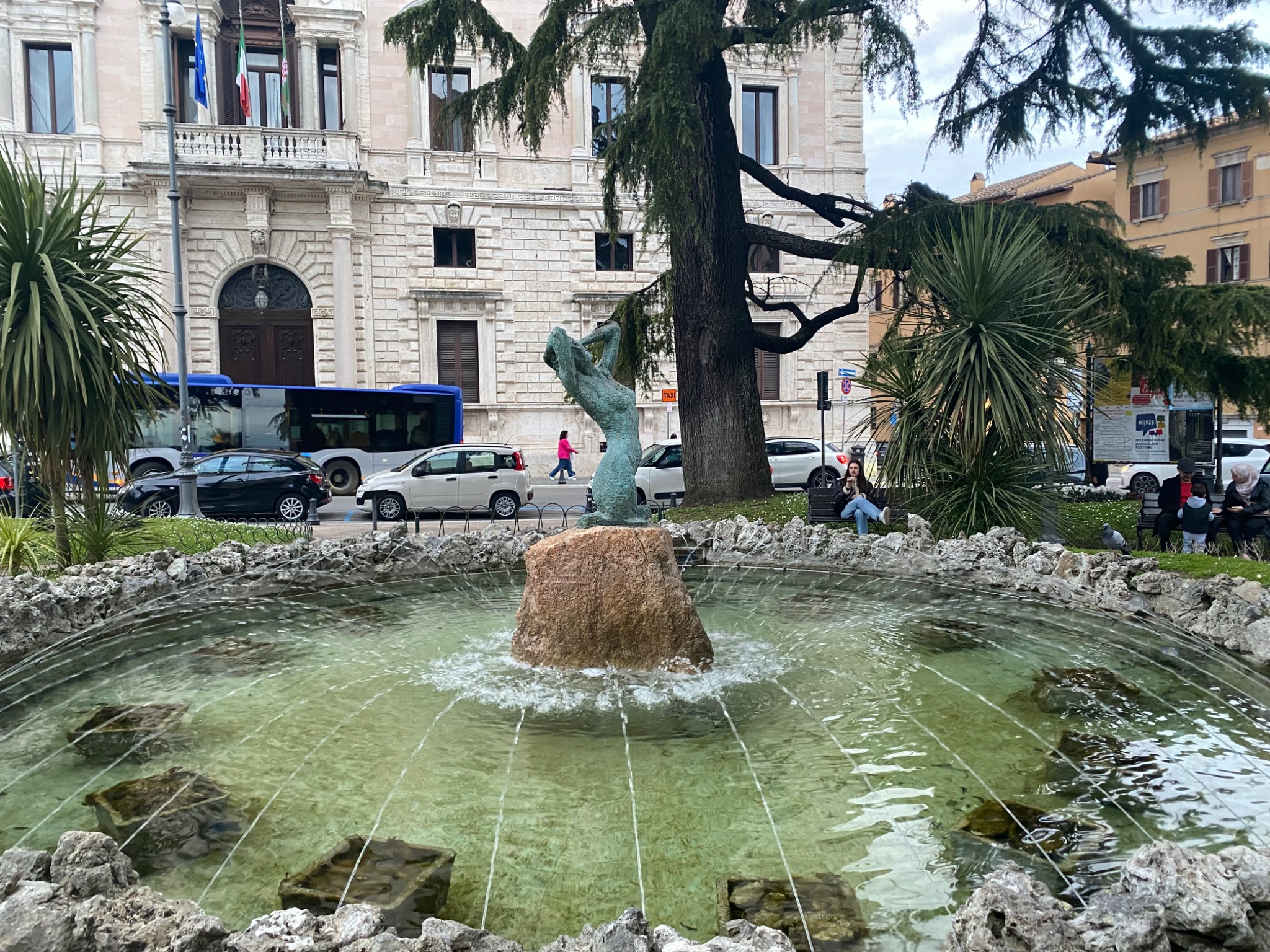
Amid all the hype, AI should still be treated as a "good intern"
Like last year, there were too many sessions on artificial intelligence (AI) to get to. I think that I counted at least five and I didn't make it to some, as there was no space. They included In an age of AI, voice is the ultimate currency, which is a must-watch, about storytelling. AI tools for journalists, which I’ve just watched at home now, was compulsory viewing.
More than 19 per cent of all content online is now AI generated, according to a study of the top 20 per cent search results, we heard at the Wayfinder session. Professor Charlie Beckett, the founding director of Polis, the journalism think-tank at London School of Economics and Political Science (LSE), told us that AI was everywhere and that besides reporters audiences were also using it. We were now in an interesting point in the "hype cycle" where we'd realised AI is neither going to solve all our problems and "nor is it going to replace journalism or journalists".
There’s no doubt that AI is helping journalists and editors with efficiency. According to Wayfinder, UK media company Reach had gone from speeding up publishing of breaking news from nine minutes to 90 seconds courtesy of this. AI can help us with reformatting, for instance turning a story into a video, or putting it into another language. Reporters are using it with brainstorming, proofreading and copy editing. Journalists are even trying to do live fact checking with AI.
But in Journalism in the age of AI: agents, answers and currency, we heard from Gina Chua, Semafor's executive editor, that we still needed to treat this technology like an English major. Or as Charlie said, "an intern" who we exercise human checks of. (Freelance journalist Anna Codrea-Rado told us in Perugia last year that this is how she uses AI. I wrote about it here.)
One important point that Charlie stressed when talking about one of his teams building an Arabic chat bot to answer questions about sexual health, using facts, was that the machines were now deciding what the story was. "It's the public, the reader saying I want to know this and then you try and give them the answer. That's what journalism should be doing. But increasingly, journalism doesn't do that. It's answering questions that we find interesting as journalists."
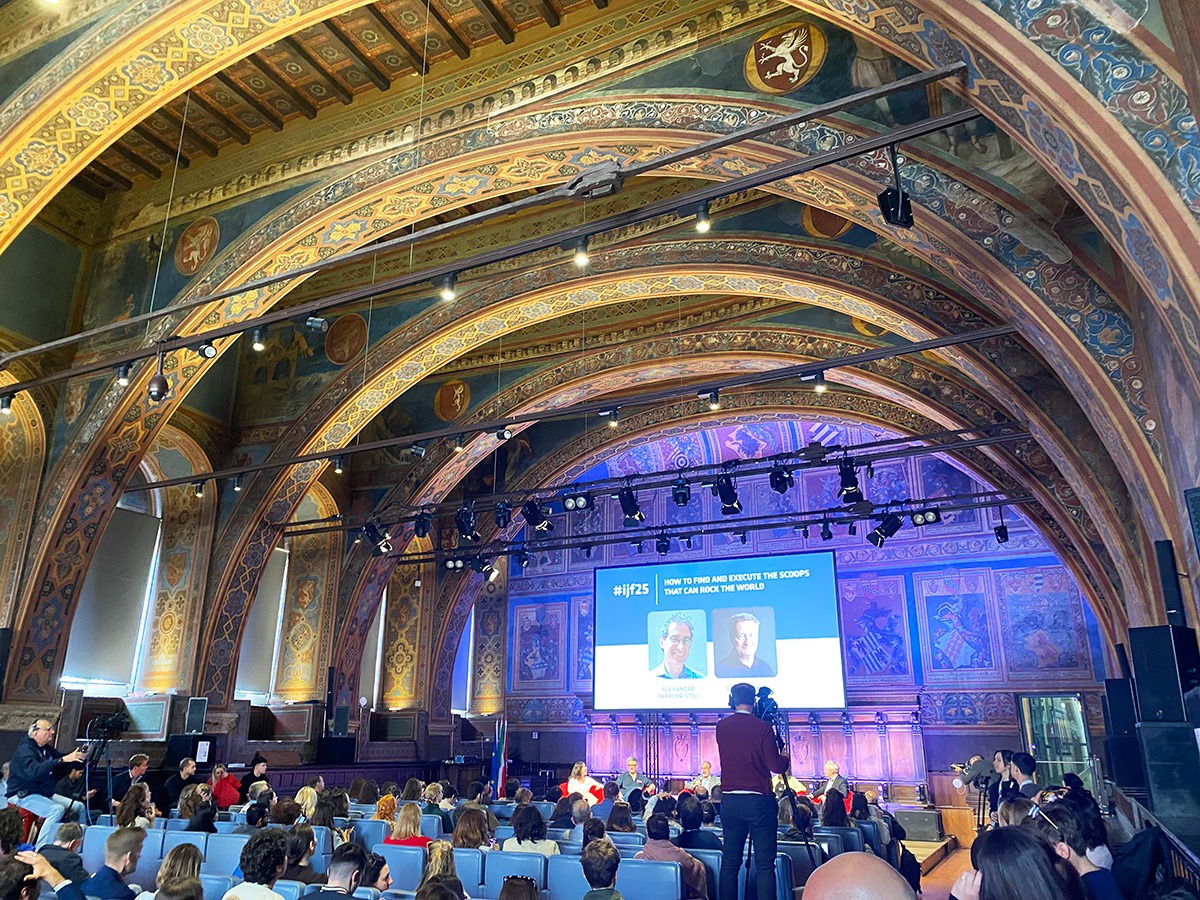
We can be journalists and feminists
A festival highlight was getting to meet Nana Darkoa Sekyiamah. She is co-founder and co-director of the Institute of Journalism and Social Change (IJSC), which brings together journalists, activists and researchers interested in gender justice. They were behind a landmark study that found that up to $70 million USD of overseas development aid had gone towards civil society organisations in Uganda that had advocated for the country’s anti-gay bill.
At last year’s festival, I recorded a podcast with IJSC on what it was like being in Uganda in 2022 and 2023 in the lead-up to the bill being passed by the nation’s Parliament.
Nana gave this as an example of a feminist investigation during the panel Lessons from feminist investigative journalists around the world. "For me, what makes an investigation feminist is really the team working on the investigation, the political beliefs of those people, if they are feminists themselves," she said. "I don't think you can have someone who is not a feminist actually lead or be part of a feminist investigation."
It's also about the way in which IJSC's work is designed. "So with IJSC we're very intentional and working with people who represent movements, who are activists, who are themselves active in struggles, who are looking for a better world," said Nana. "We want to work with them on a basis of equality."
This session was moderated by feminist author and icon Mona Eltahawy, who is an ISJC board member. She spoke at the start about covering the historic United Nation's women's conference in Beijing three decades ago, needing to take time off from her normal job to do this, and how feminism and journalism can be reconciled. (And yes Mona also sat next to us at a table when Nana ordered us the best margherita pizza ever for lunch at Osteria Pappabona!!)
Look out for The Feminist Investigative Journalism Handbook, being published by IJSC, featuring the contributions of 18 women from five continents, in the next couple of weeks.
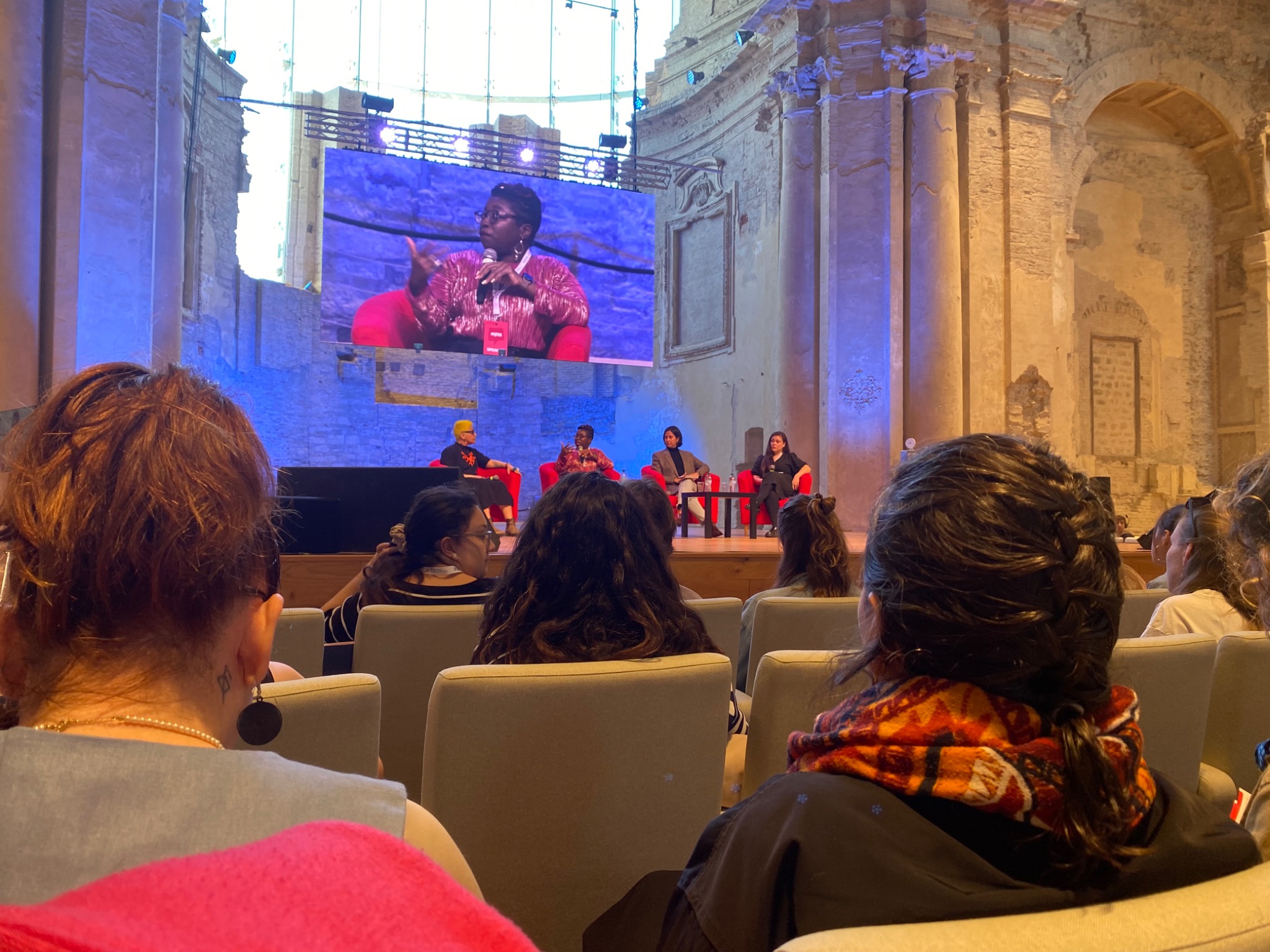
And finally, you need more in your life than journalism (and work)
“If you cut us through, journalism is in our DNA," Hannah Storm, the founder and co-director of Headlines Network, told the audience at one session. (And probably pasta and Aperol Spritz, after last week…) Hannah was diagnosed with post-traumatic stress disorder (PTSD) in 2019 after some issues related to her journalism and personal life. She was approached to write her book after speaking about her mental health journey, she said in lessons from writing a book about mental health for journalists.
This session also touched on moral injury and vicarious trauma. Interestingly on the latter, the worst case of PTSD seen by Dr Sian Williams, who Hannah interviewed for the book, involved someone who hadn’t been out of the newsroom. AFP's Global News Director, Phil Chetwynd, who was in conversation with Hannah said that the agency's video and photo editing desks had done training to help them deal with difficult issues. "Interestingly, which we realized recently with Gaza and Ukraine it's (vicarious trauma) not just (seen) on the journalism side. Some of the commercial people are looking at these images because they're trying to find the best images we have from Gaza, Ukraine, whatever. So it (vicarious trauma) can go into different areas of the company, not just on the journalism side."
On a Saturday morning fittingly, Hannah reminded us that while our work is incredibly important to us (as it is for other professionals of course), it’s still not enough for a full life and we need something outside it. Running marathons and having a kitchen disco every Friday night with her kids provided her with a relief from work. "We have to find that way of making sure that we have that opportunity to slow down. Sometimes it can be counterintuitive to the work that we do, because quite frankly the work we do can be incredibly dark, but it's okay also to find joy."
This is only scratching the surface at Perugia. Other themes from the conference included funding, press freedom, local news and even failure. Would encourage you to check out the program if you have time.
Oh and on the theme of needing more in my life than work, here's a pic of me in Roma doing some sight seeing. Ciao!
